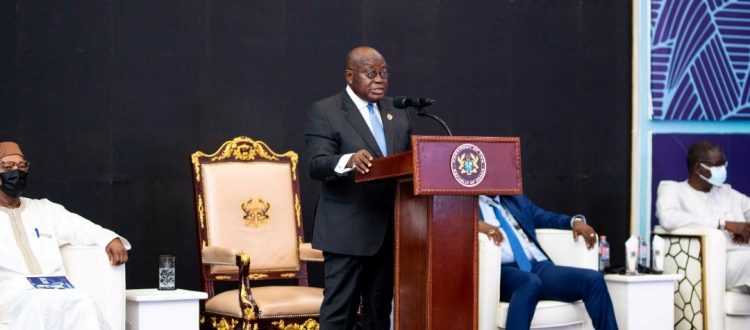
Chairman of the Gulf of Guinea Commission President Akufo-Addo has charged member states to work towards developing new strategies to deal with operations of pirates and maritime-related crimes.
Speaking at the opening of the third extraordinary session of the heads of state and government of the Gulf of Guinea Commission in Accra, the President said a stronger political will is needed to win the fight against maritime-related crimes.
Of the 90 global piracy and armed robbery incidents reported between January and September 2022, 13 have been reported in the Gulf of Guinea region, compared to 27 over the same period in 2021.
Despite the decline, the threat level in the Gulf of Guinea region remains high, as highlighted by United Nations Security Council Resolution 2634 on Piracy and Armed Robbery in the Gulf of Guinea, which was unanimously adopted in May 2022.
The costs of piracy weigh so heavily on the region’s economic and trade potential, with direct and indirect costs estimated at US$1.925 billion annually for Gulf of Guinea countries.
The third extraordinary session meeting in Accra is expected to discuss strategies for the strengthening of peace and security in the fight against related crimes in the region.
President Akufo-Addo in his capacity as the chair of the Commission at the opening of the session called for effective collaboration and political will to fight piracy.
He encouraged members to deliberate on the need to expand membership to include countries in the geopolitical Gulf region in order to be more effective in the fight against maritime-related crimes.
The Gulf of Guinea Commission comprises 9 countries in the region, Benin, Côte d’Ivoire, Ghana, Guinea, Liberia, Nigeria, Sierra Leone and Togo and Congo.
The Gulf of guinea commission is an international body, established by the Treaty signed in Libreville, Gabon, on 3 July 2001.
A communique is expected to be issued at the end of the meeting.
By uniquenewsgh.com
 Uniquenewsgh.com News, Politics, African News Updates & More
Uniquenewsgh.com News, Politics, African News Updates & More


